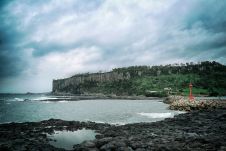Laser Optical Plankton Counter Sales
ODIM Brooke Ocean has received several orders for the ODIM LOPC (Laser Optical Plankton Counter).
The Korean Polar Research Institute has placed an order for a standard ODIM LOPC. The system is scheduled for delivery in November 2008. KPORI will use the LOPC as part of their mission to undertake a world-class program of scientific research, survey and long term observations addressing key issues of global or fundamental importance that require access to the Arctic/Antarctic or related regions.
In addition, the Korean National Federation of Fisheries Cooperative has ordered a standard ODIM LOPCTM in conjunction with the ODIM MVPTM200 system. The core agenda of NFFC is to study the marine ecosystem for a sustainable fisheries resource. The MVP200 and LOPC will be used on the R/V TAMGU.
The National Oceanography Center, Southampton (NOCS) has submitted an order for two ODIM LOPC systems. The LOPC will be integrated into their existing ODIM MVP300 system for real-time underway ocean profiling. NOC is using the LOPC to measure biomass and size spectra and comparing them to physical samples from closing nets. The objective is to address the role of zooplankton in the "twilight zone".
The Australian Institute of Marine Science (AIMS) has ordered a standard ODIM LOPC with a Data Logger. AIMS is a leader in tropical marine science. Its research programs support the management of tropical marine environments around the world, with a primary focus on the Great Barrier Reef World Heritage Area, the pristine Ningaloo Marine Park in Western Australia and northwest Australia. AIMS intend to integrate the LOPC with their winch/conductive cable configuration onboard their existing research vessels.
The Institute of Marine Biologi of Far East branch of Russian Academy of Science has purchased a standard ODIM LOPC. The Far East branch of the Academy of Science is a collaboration of research institutes that share data and information on various aspects of marine biology and oceanography with both regional and international science organizations. The institute will use the LOPC to support their research in coastal oceanographic monitoring and data analysis.
The LOPC is the next generation in plankton profiling. The LOPC's high speed processing and improved detection plane provides detection counts at higher resolutions and higher concentrations with lower coincidence. This also allows the LOPC to be integrated into tow bodies, traveling at up to 12 knots and still providing reliable data.














